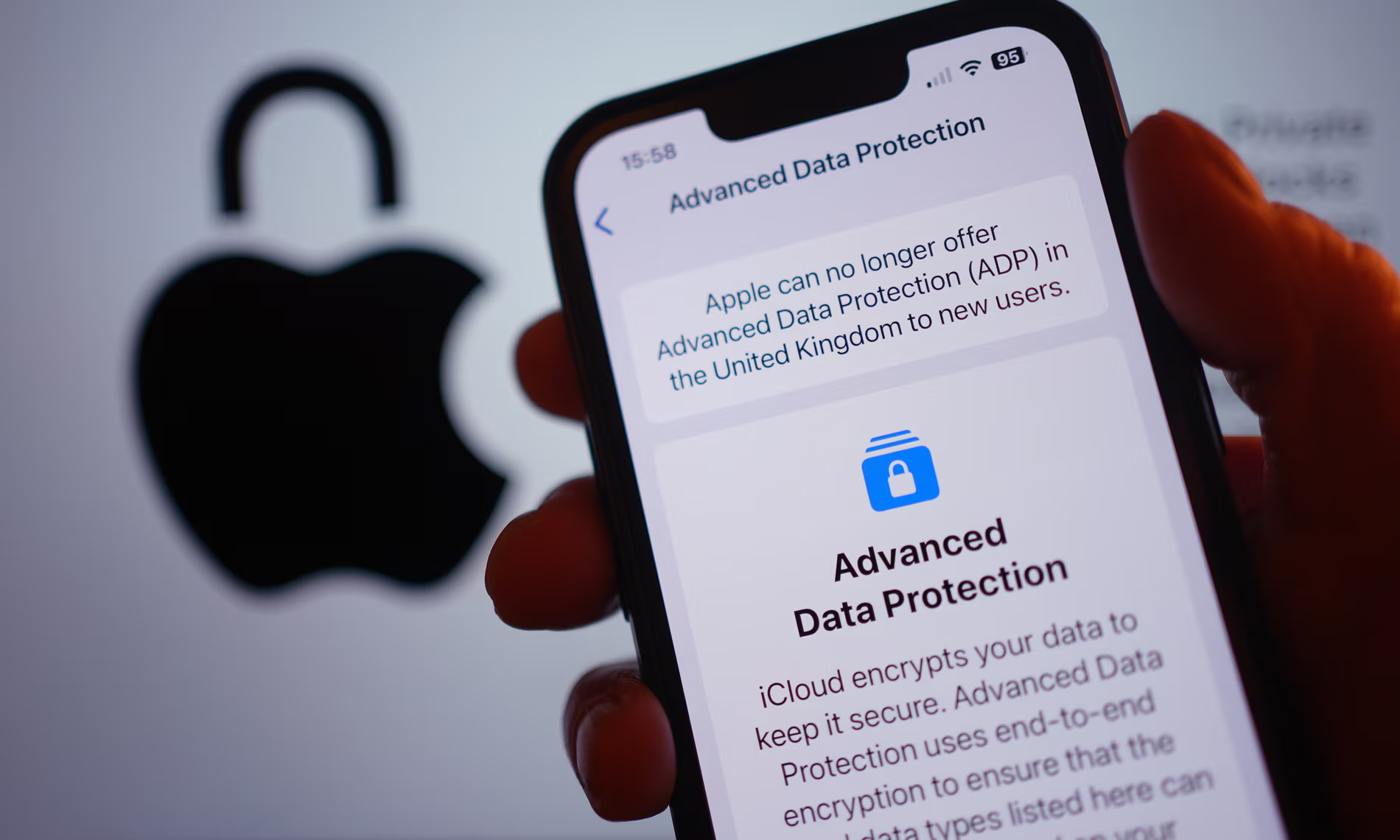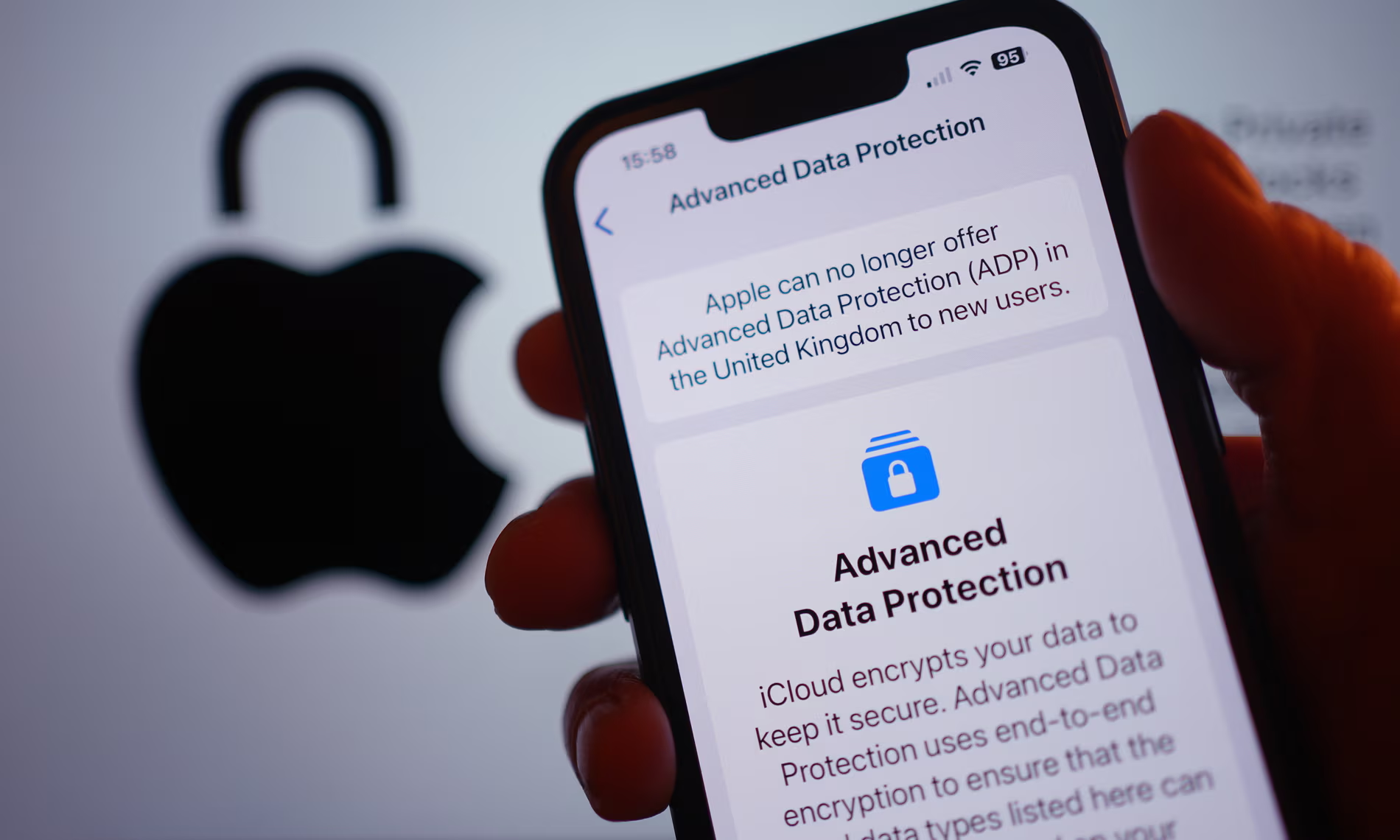Apple Bows to UK Government, Sacrificing User Privacy
In an alarming turn of events, Apple has bowed to the UK government’s demands by removing Advanced Data Protection (ADP) for iCloud users in the country. This is not just a policy change—this is an assault on digital privacy.
Apple’s ADP feature provided end-to-end encryption, ensuring that not even Apple could access users’ backed-up data. With its removal, UK users have lost this protection, leaving personal data vulnerable to government and third-party access.
This isn’t about catching criminals—it’s about mass surveillance, forcing tech companies to hand over private data at will. It’s a betrayal of user trust, a security risk, and a dangerous precedent for government overreach into personal digital lives.
The Erosion of Digital Privacy
Without Advanced Data Protection, the following risks become immediate concerns:
- Your iCloud data is accessible to Apple—and can now be handed over to authorities upon request.
- UK law enforcement agencies can demand user data under the Investigatory Powers Act, often without your knowledge.
- Cybercriminals could exploit weakened security—if Apple is forced to introduce backdoors, those same vulnerabilities could be exploited by hackers.
Make no mistake: this is not about security. Weakening encryption for “safety” makes everyone more vulnerable, not just criminals. A backdoor for the government is a backdoor for hackers, rogue states, and corporate spies.
The Illusion of Security
Proponents argue that accessing encrypted data is essential for combating serious crimes. However, this perspective is shortsighted. Weakening encryption not only exposes personal data to government scrutiny but also makes it susceptible to cybercriminals. The very backdoors created for government access can be exploited by malicious actors, leading to increased cyber threats.
The UK government has been pushing for a backdoor to encrypted communications for years. It’s why companies like Signal have threatened to leave the UK if forced to compromise encryption. Today, it’s Apple. Tomorrow, it could be Google Drive, WhatsApp, or your personal VPN provider.
How Can We Fight Back?
While Apple has abandoned UK users, we don’t have to give up on privacy. Here’s how you can protect your data despite Apple’s decision.
1. Stop Using iCloud for Sensitive Data
With ADP gone, iCloud is no longer a secure option for private information. Move your data elsewhere:
✔ Use a third-party encrypted cloud provider – Consider Proton Drive or Sync.com, which offer zero-knowledge encryption, meaning even the service provider can’t access your files.
✔ Host your own cloud – Self-hosting solutions like Nextcloud or Syncthing give you total control over your data.
2. Encrypt Your Data Before Uploading
If you must use iCloud, encrypt files first so that only you hold the decryption keys. Tools like:
✔ Cryptomator – Encrypts cloud-stored files before they sync.
✔ VeraCrypt – Creates secure encrypted volumes.
✔ Age or GPG – Encrypt text files and documents before storage.
This ensures Apple or any authority can only see encrypted gibberish, not your actual data.
3. Switch to Secure Messaging Apps
WhatsApp, iMessage, and other mainstream platforms may comply with UK surveillance laws. Instead, use true end-to-end encrypted apps that resist government interference:
✔ Signal – Open-source, end-to-end encrypted, no metadata logging.
✔ Session – Decentralized, anonymous, and doesn’t require a phone number.
✔ Element (Matrix Protocol) – Secure, self-hosted option for tech-savvy users.
4. Use Private Email Services
Apple Mail and mainstream providers like Gmail can hand over your emails if requested. Use a provider that prioritizes encryption:
✔ Proton Mail – End-to-end encrypted emails by default.
✔ Tutanota – Completely encrypted mail with a focus on privacy.
5. Switch to Zero-Knowledge Password Managers
Apple’s iCloud Keychain is no longer safe—Apple holds the encryption keys, meaning your passwords can be accessed. Use a zero-knowledge password manager instead:
✔ Bitwarden (self-hosted option available)
✔ 1Password (with local encryption key storage)
✔ KeePassXC (completely offline, open-source)
6. Consider Alternative Operating Systems
If Apple continues complying with invasive policies, it might be time to question if Apple devices are still worth using. Privacy-focused alternatives include:
✔ GrapheneOS (Android-based, hardened security, no Google tracking).
✔ CalyxOS (Privacy-focused Android alternative).
✔ Linux on desktop/laptops – Avoid Apple and Microsoft altogether.
Join the Fight: Sign the Petition
Public resistance can influence corporate decisions. A petition has been launched to demand that Apple restores Advanced Data Protection for UK users. By signing, you are sending a clear message that privacy is a fundamental right, not a privilege to be revoked at the whim of government pressure.
🔗 Sign the petition here: Keep Our Apple Data Encrypted
The more voices we have, the harder it will be for Apple to ignore us. Take action.
Final Thoughts
Apple’s decision to remove Advanced Data Protection is a betrayal of UK users. It shows that, when faced with government pressure, Apple will sacrifice privacy for compliance.
But we don’t have to accept this.
By taking control of our own data, moving to secure alternatives, and demanding accountability from both Apple and the UK government, we can protect ourselves from surveillance and control.
This isn’t just about Apple—this is about the future of digital privacy in the UK and beyond. Now is the time to act.




